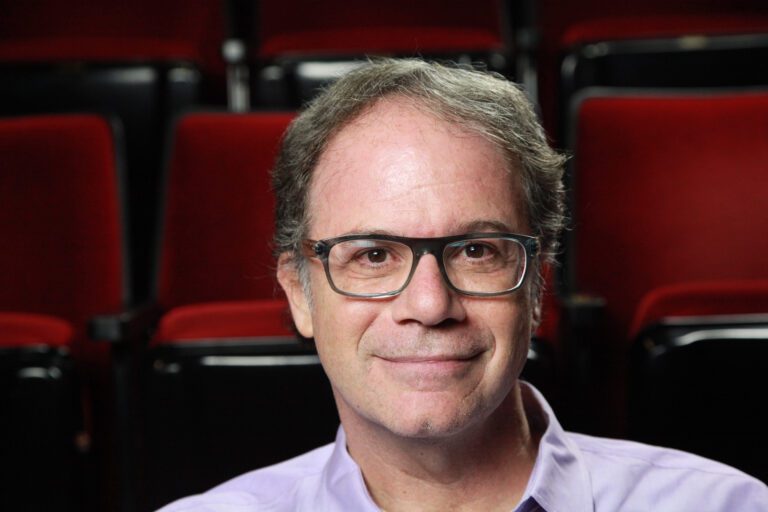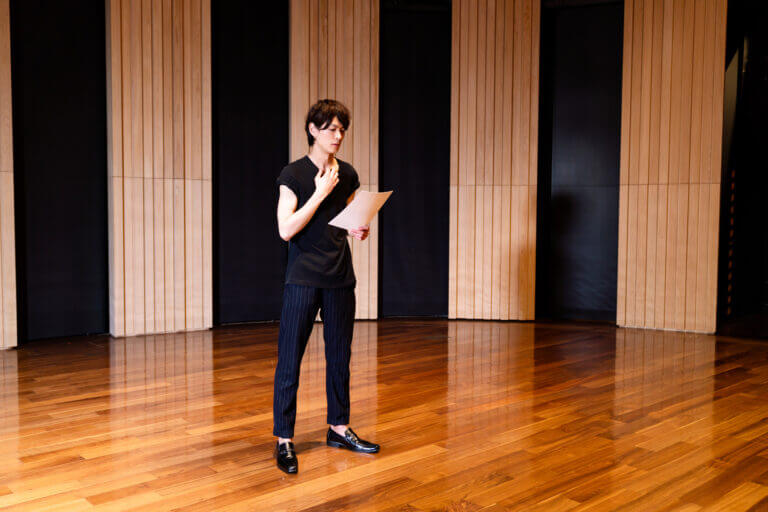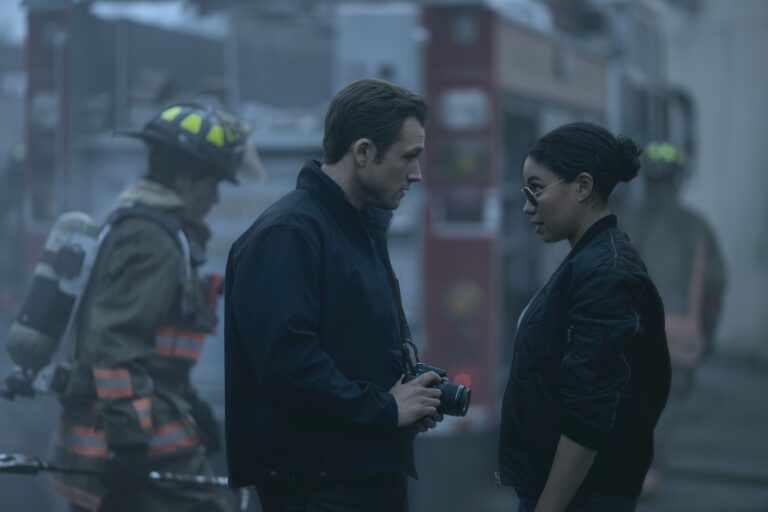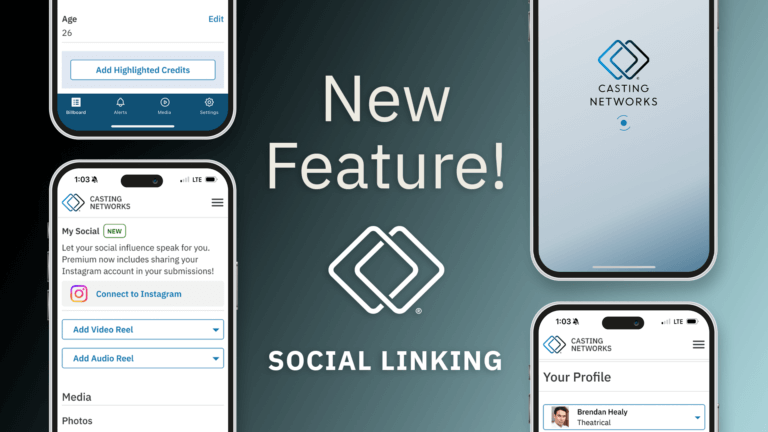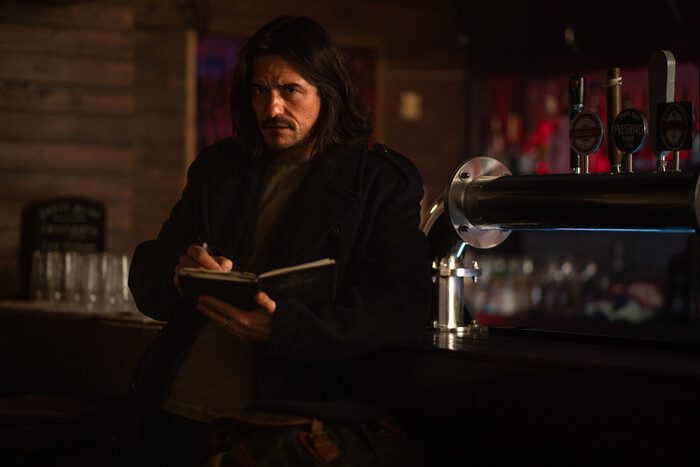When Casting Networks last spoke to Audrey Moore, the founder of Audrey Helps Actors talked about the importance of community. “I try to be a warrior against shame and an advocate for compassion, camaraderie and information,” she said. “A transparent, generous-with-information community is something that I’m passionate about.” Now, after a year and a rather long actors strike, she’s back to talk about how actors can take care of their mental health.
Moore’s crusade goes beyond helping other actors get work or hone their craft. She also focuses on their mental health. In conjunction with Casting Networks’ new Thrive program, we sat down with Moore again. She chatted with us from her home in LA.
When we spoke to you last year, you talked a lot about the need for actors to have more of a community, where you’re looking out for each other and giving each other the information you need to survive and thrive. I’m curious about your take on that and how you feel about it a year later.
I think I feel even stronger about that now than I ever have. Mostly, I feel that transparency between us is extremely vital as part of the health of the overall community. I think there is a lot of FOMO-slash-shame about where each of us is and isn’t.
If you can’t, at this point, make it to a place where you’re getting consistent television auditions and a friend of yours is, then there can be a lack of self-confidence and a feeling like, “Is it me? Is there something I should be doing? What am I doing wrong?”
Sometimes we get results, and sometimes we don’t. That’s just the nature of the game.
In a sense, it’s making sure everyone understands that everyone goes through it.
I think actors are often very tight-lipped, for fear of retribution, about the struggles that they experience.
Because you’re an actor, there’s this feeling from others that, “Well, that’s not a struggle, a struggle is fill-in-the-blank.” That’s true, whether or not you’re getting a booking this month from your commercial callback is maybe not on par with our great struggles, but actors feel. That’s what we do. We feel very deeply.
I just encourage more interpersonal actor-to-actor transparency and communication, maybe not even in a public or online way that people feel they’re going to get attacked, but just being in consistent discussion about what’s happening, so that the whole process is normalized.
That feels like a really good segue into talking about the mental health of actors. There is an inherent amount of rejection that goes with the territory, but that adds up, right?
We are talking about the smallest percentage of actors who are going to have consistent work multiple days in a year over the years. So, yes, there is an inherent anxiety, but we’re talking about the experience of being in character, perhaps, versus the experience of trying to book jobs that will allow you to be in character.
It is a lot to play multiple people in a week, much less to go and perform in front of people. I always remind actors that the top two fears are death and public speaking, and with that, I think there’s a forgetting of that when you sign up to be an actor.
 Photo courtesy of Audrey Moore.
Photo courtesy of Audrey Moore.There’s going to be an inherent adrenaline rush when you’re auditioning.
Right. And it may be more of a thing for some actors than for others, but the adrenaline and the hyper-focus that occurs when you are in character and the camera is rolling, or you are in character and you are in an audition, or in character and on a stage performing for people, it takes a lot out of the human body.
Also, your body doesn’t know the difference between you playing pretend, in this experience, and you going through this experience. We also get into a lot of actors using a lot of different techniques, one of which is maybe emotional recall for personalization. You’re essentially re-traumatizing your body of experience, either in the past or present, or that you fear in the future, to get yourself in an authentic, emotional and physical state. Your mind is like, “Oh, no, let’s pretend it’s real. Let’s get our body ready.”
On top of that, there is the getting the audition, the adrenaline of the audition, the panic of the audition, the research of the audition. That panic for many people of covering a shift at work, possibly, or now finding a reader and getting help and securing maybe a coach, and then do you pay for that coach? Then you have money insecurity that comes in, and there’s a lot of anxiety around that. When you finally finish the audition, there is an adrenaline dump that occurs, and it’s emotional. We must take care of our mental health.
What are some ways to do that?
First and foremost, I always go back to what we were talking about before, which is community. I always recommend people have some friends in the community who are 10, 20 years older, and if you can, a few years to several years younger, so that you continue to have perspective on the entire journey.
Experience can walk you through when you need it, and someone with maybe less experience can listen and can remind you how cool it is that you had this experience this week, because they are sort of maybe dying to have that experience.
Most actors in a theatrical pursuit are not going into a room anymore. That’s very isolating, versus going in a room, having a conversation with casting, working it out and leaving. Then you chat with three of your friends who also auditioned with you and you talk about what just happened. This makes it an emotional and sometimes lonely journey, and we didn’t sign up to be in a lonely art form. The next thing I recommend is therapy.
 Photo courtesy of Audrey Moore.
Photo courtesy of Audrey Moore.What if someone can’t afford therapy?
There are a lot of alternatives to affording therapy. I know in Los Angeles, and in the arts community at large, there are all kinds of programs that do offer one-on-one therapy, or group therapy for free. I know that the Entertainment Community Fund has tons of truly fantastic group therapy situations for all kinds of experiences.
What Casting Networks has done with Thrive is a fantastic alternative to something that is a much more affordable version of what, for someone seeking therapy in these major cities of New York City and Los Angeles, isn’t very expensive. If we’re normally talking $200 to $300 for a single session, I know Thrive’s number is closer to $30 or $40. It’s so much more accessible.
The universities have incredible options as well, and Los Angeles and New York are littered with them. Almost every university has a therapy program, where you go in for $10 or $20. Now you don’t even have to leave your home. You can do things virtually. That can be a much safer environment for people who maybe haven’t tried it.
Emotions are the key that unlocks it all, so you need to have a handle on them. I don’t know an elite athlete who doesn’t need a physical therapist. One who says, “My legs aren’t working right, but I’m just gonna run, anyway.” I think that’s a lot of what actors go through. And they don’t need to.
Did you know that Casting Networks Premium memberships now include access to health and well-being benefits and discounts? Click here to learn more about Thrive!
You may also like:







